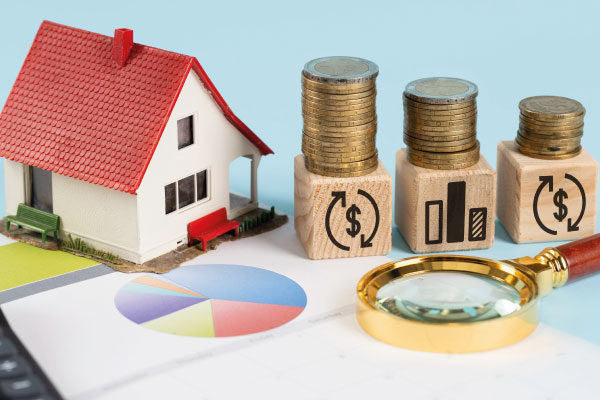6 Obstacles To Homeownership—And How To Overcome Them
Americans still want to buy a house, but over three-fourths say they’ve encountered obstacles. A higher cost of living, saving for a down payment, insufficient income and poor credit are a few of these hurdles. If you feel like buying a home is out of reach, down payment assistance programs, loans with flexible requirements and affordable housing alternatives could put you closer to homeownership.
Here are 6 common challenges homebuyers have reported facing, along with practical solutions to help you overcome them:
1. High Cost Of Living
With housing prices, low inventory of homes and the cost of living going up, you may be finding it harder to afford a home in your community. This can, understandably, lead to frustration. Approximately 46 percent of prospective homebuyers feel that the cost of living has gotten too high.
Solutions:
- Look into moving to more affordable areas within a short distance from where you want to live in.
- Research government programs that provide financial assistance to eligible homebuyers.
- Focus on paying down existing debt and increasing your income, where possible, to free up more funds for your housing budget.
WE RECOMMEND: Can You Use a HELOC To Pay Off Your Mortgage?
If you feel like buying a home is out of reach, down payment assistance programs, loans with flexible requirements and affordable housing alternatives could put you closer to homeownership.
2. Saving For Down Payment
It can be helpful to make a large down payment on a house, if you have the funds available. But in reality, the median down payment for a first-time homebuyer is closer to nine percent. If you don’t meet your down payment savings goal, don’t worry. You still have options.
Solutions:
- Ask your DG Pinnacle loan officer about low and no down payment home loans, with down payment minimums ranging from 0 to 3.5 percent.
- Also ask your loan officer which down payment assistance programs or grants you may qualify for.
- Set up a dedicated savings account with automatic contributions to build your down payment faster.
3. Qualifying For a Mortgage
Need help buying a house with poor credit? Concerned you won’t meet income requirements? It can still be worth meeting with a loan officer to find out where you stand. Many homebuyers aren’t aware that they already qualify. For others, getting professional guidance may help to improve their financial situation.
Solutions
- Consider a co-signer or look into government-backed loan options, such as FHA loans, that may be easier to qualify for.
- Work on improving your financial health by paying off smaller debts, reducing credit card balances and avoiding new debt before applying.
KEEP READING: Saving for a House? Let’s Get Started
It can still be worth meeting with a loan officer to find out where you stand. Many homebuyers aren’t aware that they already qualify.
4. Lack of Affordable Homes
Home prices have risen in many markets, leaving 35 percent of would-be homebuyers struggling with a lack of available homes within their budget. While prices do go up and down, homes are expected to cost more next year than they do today.
Solutions:
- If you want to stay close to friends and family, expand your home search radius to include surrounding suburbs where prices may be lower.
- Consider purchasing a smaller or older home that you can renovate over time or a different property type, such as a condo or manufactured home, that may better fit your budget.
5. Poor Credit Score
Your credit score shows how you’ve managed money in the past. A higher score could help you qualify for a better mortgage rate, making homeownership more affordable. A lower rate can decrease your monthly mortgage payment, saving thousands of dollars over the life of your loan. Roughly 35 percent of nonhomeowners have concerns about their credit.
Solutions:
- Make payments on time whenever you can; timely payments have a major impact on your score.
- Pay off balances and increase your income, if possible, to decrease your credit utilization ratio.
- Check your credit report for errors and dispute any inaccuracies that could be negatively impacting your score.
WE RECOMMEND: 5 Key Factors of your Credit Score
Your credit score shows how you’ve managed money in the past. A higher score could help you qualify for a better mortgage rate.
6. Higher Mortgage Interest Rates
It’s true that mortgage rates have risen from the record lows seen during the pandemic. But those rates were the exception, not the rule. Today’s higher mortgage rates are still below the recorded historical average. Even so, a higher rate can impact affordability, increasing your monthly mortgage payment.
Solutions:
- Look into a temporary buydown, which can lower your rate—and monthly payment—for the first few years of homeownership.
- Work to improve your credit score to qualify for the lowest interest rate available.
Bottom Line
If you have questions about the process to become a homeowner or how to get started, feel free to contact us
One of our Loan Officers will be pleased to help you.
This article was originally published in www.guildmortgage.com






